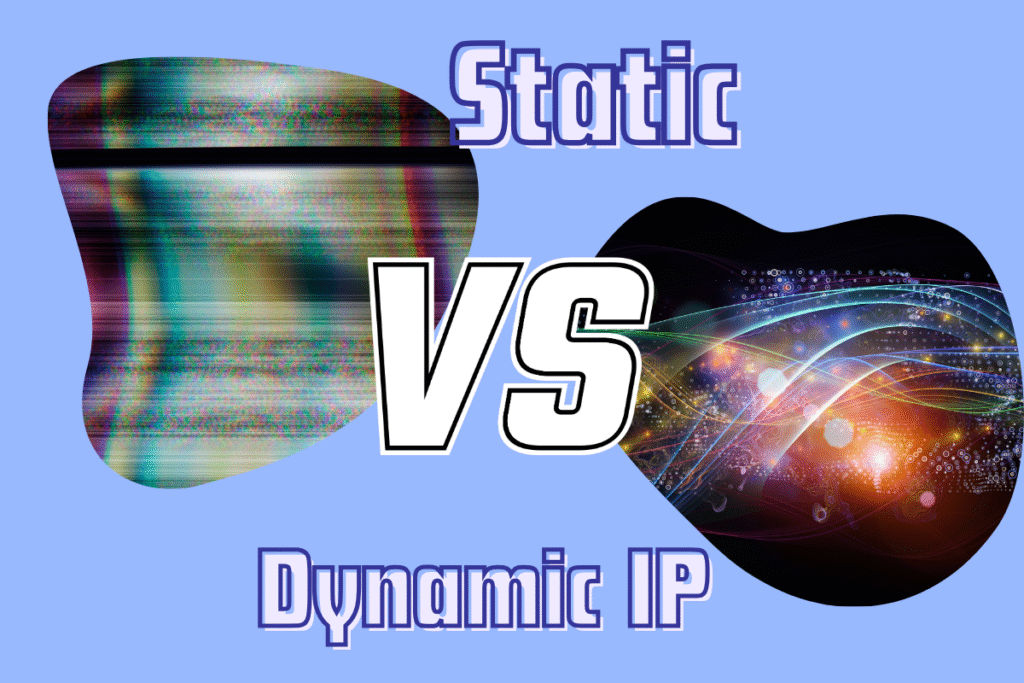One of the most overlooked (yet crucial) decisions when setting up a leased line is whether to opt for a static or dynamic IP address.
Join us below as we explore the difference between static and dynamic IPs, their impact on security, accessibility, remote working, and scalability, and ultimately help you decide which is best for your leased line setup.

📌 What Is an IP Address?
An IP address is kind of like a digital postcode for your device or network as it allows systems to identify and communicate with each other over the internet.
There are two main types of IP addresses relevant to business leased lines:
- Static IP: A permanent, unchanging address assigned to your network.
- Dynamic IP: An address that changes periodically, assigned from a pool by your ISP.
⚖️ Static vs Dynamic IP: Main Differences
Feature | Static IP | Dynamic IP |
Address Type | Fixed/permanent | Changes periodically |
Ideal For | Hosting servers, VoIP, CCTV, VPNs | Basic browsing and cloud use |
Security | More vulnerable without configuration | Slightly less visible externally |
Remote Access | Easier to set up | Harder to maintain reliable access |
DNS & SSL | Supports custom DNS & SSL easily | Less predictable |
Price | May incur a small fee | Often included as default |
✅ Why Do Businesses Choose Static IPs?
Most UK businesses with leased lines opt for static IPs, and for good reason:
1. Remote access
A static IP ensures consistent access to internal systems via VPNs or remote desktop connections which we know is vital for remote workers or multi-site teams.
2. Server hosting
If you’re hosting:
- Email servers
- Web servers
- FTP services
- …a static IP is essential. It ensures that customers and systems can always connect to the same location.
3. VoIP and CCTV systems
VoIP phones and IP-based CCTV systems often require a fixed address for consistent operation and to avoid connection issues.
4. Secure connections
Static IPs simplify whitelisting, allowing secure access from known sources, which helps with firewall configurations and compliance (e.g. Cyber Essentials).
🔁 When Is a Dynamic IP Good Enough?
Dynamic IPs are typically suitable for:
- Startups or small teams that don’t host services
- Companies relying on cloud-based tools like Google Workspace or Microsoft 365
- Cost-sensitive businesses where every penny counts
Look, we know that they’re less predictable and harder to configure securely, but can be adequate for general online activity.
🔐 What About Security?
Static IPs expose your network to greater visibility online. However, with proper firewalls, encryption, and access controls, they can still be very secure, and allow greater control for internal IT teams.
Dynamic IPs offer a level of natural obscurity, making them marginally safer out of the box, but they limit custom security configuration and remote access options.
📡 How Many Static IPs Do You Need?
When setting up a leased line, providers usually include 1 to 8 static IPs by default, and some even offer larger IP blocks (/29, /28 or /27 ranges) if needed.
You might require multiple static IPs if you:
- Host multiple services or domains
- Need separate IPs for different teams or firewall zones
- Run high-availability failover setups
🔄 Can You Switch Between Static and Dynamic IPs?
Yes! Bbut not instantly.
Switching to static IPs often requires a configuration update from your provider. If you’re planning to upgrade from dynamic to static (or vice versa), ask about:
- Lead time
- Costs
- Downtime risk
🏢UK Providers Offering Static IPs with Leased Lines
| Provider | Redundancy options | Dual carrier Support? | From |
| Diverse routing, dual links | Yes | £399 + redundancy |
| Dual-site connectivity | Yes | £400 + |
| Separate routes, SD-WAN | Yes | £450 + |
| Active-passive options | Limited | £300 + |
| Multi-site and resilient WAN | Yes | £375 + |
🧠 Final Recommendation: Which Should You Choose?
Your Business Needs | Best Choice |
Host services, run VoIP, need VPNs or CCTV | ✅ Static IP |
Use cloud apps only, no servers or remote users | ⚠️ Dynamic IP |
Require fixed security rules or remote access | ✅ Static IP |
Need to keep costs ultra-low | ⚠️ Dynamic IP |
💬 Final Thoughts
For most UK businesses investing in a leased line, a static IP address is the smarter and more scalable choice as it unlocks the full potential of your connection… from secure remote access and VoIP to hosting and firewall control!







